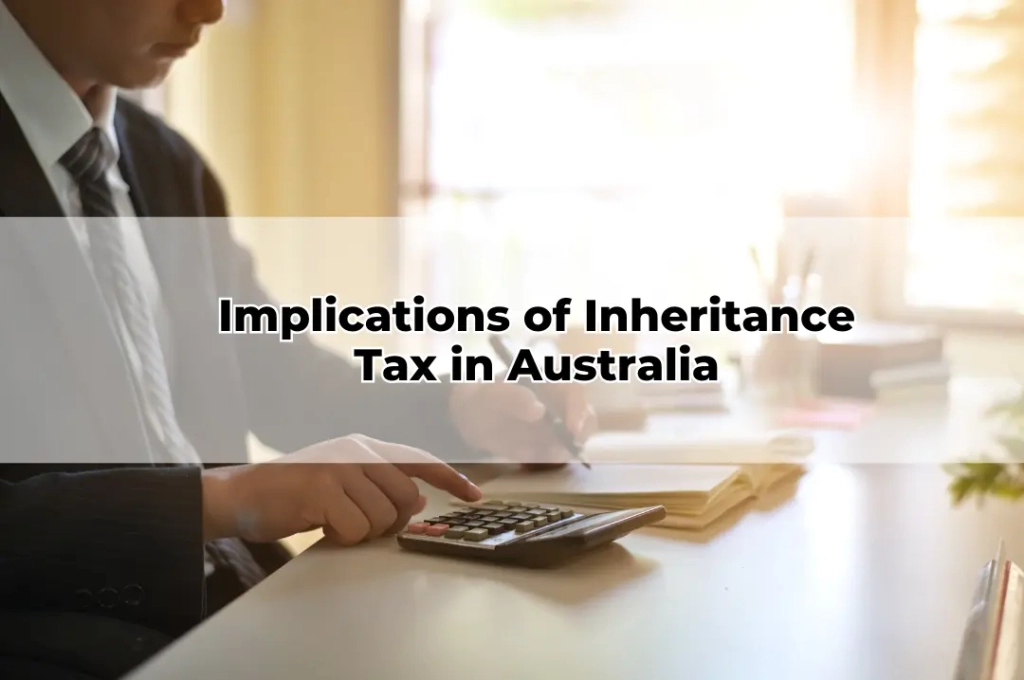Implications of Inheritance Tax in Australia
Table of Contents
ToggleInheritance tax, commonly referred to as estate duty in some jurisdictions, is a levy imposed on the assets of a deceased individual before they are transferred to beneficiaries. While Australia does not currently impose a direct inheritance tax, the financial implications of inheriting wealth can be significant. Understanding the tax treatment of inherited assets is crucial for effective financial planning.
The History of Inheritance Tax in Australia
Australia previously had an inheritance tax in place, but it was abolished in 1979. The decision to remove estate duties was influenced by economic and political factors. Despite this, certain tax obligations remain, particularly in relation to capital gains tax (CGT) and superannuation death benefits.
Capital Gains Tax and Inherited Assets
Although Australia does not levy an inheritance tax, capital gains tax (CGT) can apply when beneficiaries dispose of inherited assets. If the deceased acquired the asset before 20 September 1985, CGT may not apply. However, for assets obtained after this date, the cost base is determined by various factors, influencing the taxable gain upon sale.
Superannuation Death Benefits and Tax Considerations
Superannuation is a key component of retirement wealth, and its treatment upon death has notable tax implications. When a superannuation death benefit is paid to a dependent, it is typically tax-free. However, non-dependents may be subject to tax on the taxable component of the benefit, which can be a substantial consideration in estate planning.
Tax Treatment of Trusts and Estates
Many Australians structure their wealth through trusts, which can have different tax implications upon inheritance. Testamentary trusts, for example, offer tax advantages, particularly for minor beneficiaries, who are taxed at adult marginal rates instead of punitive penalty rates.
Foreign Inheritance and Australian Tax Implications
For Australian residents inheriting wealth from overseas, tax treatment can become complex. While the inheritance itself may not be taxed in Australia, income generated from inherited assets, such as rental income or dividends, is subject to Australian taxation. Exchange rate fluctuations and foreign tax obligations should also be considered.
Gifting Wealth to Avoid Tax Liabilities
Some individuals attempt to transfer wealth through gifting to minimise tax liabilities upon death. However, there are stringent rules around gifting, particularly concerning Centrelink and aged care means testing. Large gifts may affect pension eligibility and aged care funding assessments.
Estate Planning Strategies to Minimise Tax Burden
Effective estate planning can significantly reduce the tax burden on beneficiaries. Strategies such as binding death benefit nominations, structuring investments tax-efficiently, and using testamentary trusts can ensure wealth is transferred optimally.
The Role of a Financial Adviser in Estate Planning
A financial adviser plays a crucial role in structuring an estate plan that minimises tax liabilities. Professional guidance ensures that superannuation, property, and investment assets are managed efficiently for intergenerational wealth transfer.
Common Misconceptions About Inheritance Tax in Australia
Many Australians mistakenly believe that there are no tax consequences when inheriting wealth. While there is no direct inheritance tax, beneficiaries often face financial obligations related to CGT, superannuation, and trust distributions.
Legislative Changes and Future Considerations
While Australia currently does not impose an inheritance tax, legislative changes could occur in the future. Monitoring government policies and potential tax reforms is essential for individuals engaged in long-term financial planning.
Conclusion
Understanding the nuances of tax obligations related to inheritance is essential for safeguarding wealth and ensuring financial stability for beneficiaries. Consulting a qualified financial adviser can help navigate the complexities of estate planning and tax efficiency, ensuring that inherited
wealth is managed prudently. By working with a Toowoomba Financial Adviser who specialises in estate planning, individuals can develop a structured approach to wealth succession, aligning with their financial goals while minimising potential tax liabilities. Whether seeking Financial Planning Toowoomba services or Online Financial Adviser support, professional advice is paramount in navigating the intricate tax landscape associated with inheritance.









